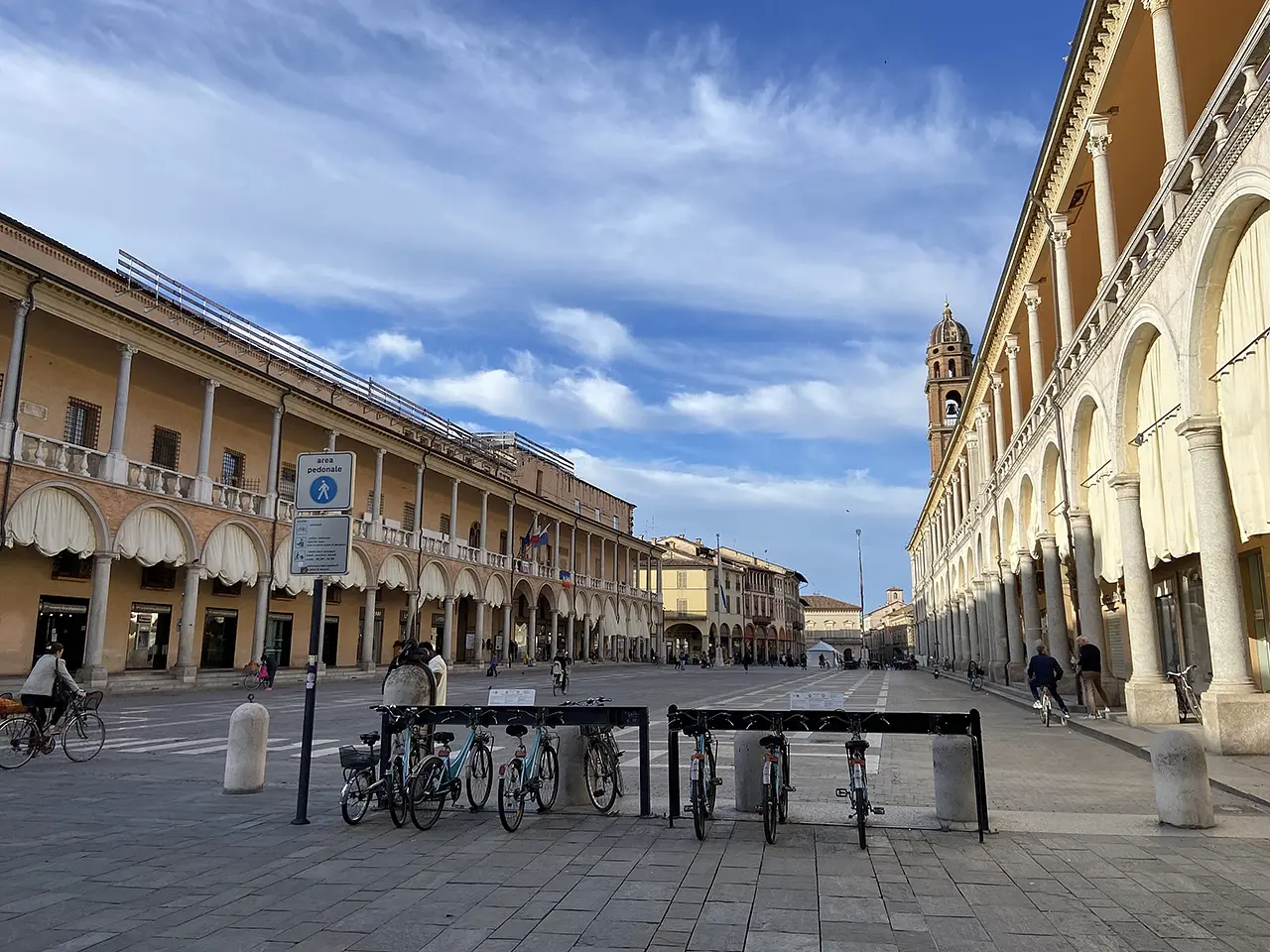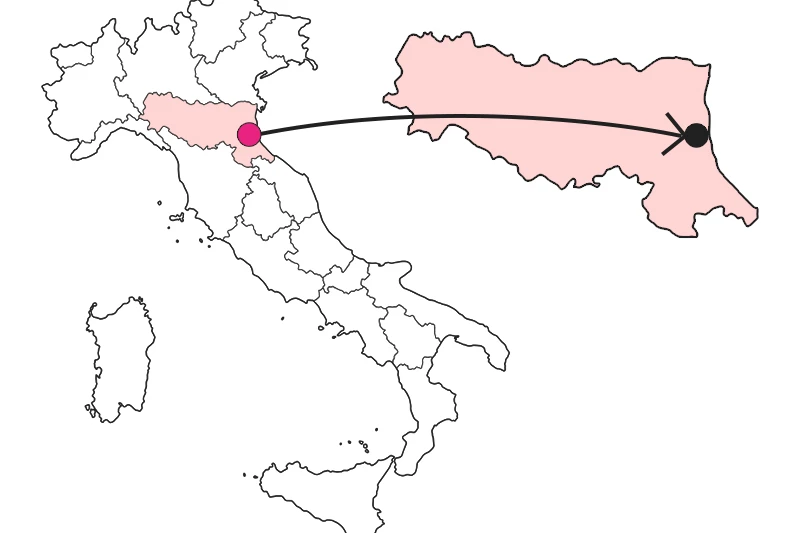












Piazza del Popolo, the living room of Faenza
The white loggias, the outdoor tables, the shopping arcades.


Where

What is it and where is Piazza del Popolo in Faenza
It is actually two seamless squares, Piazza della Libertà, overlooked by the Duomo, the center of religious power, and the actual Piazza del Popolo, the center of political power. Establishing the boundary between the two squares is the crossing of the Via Emilia, but the division is barely perceptible and the whole appears as one large, scenic space.
Why it is special: the palaces of power
On one side faces the Palazzo del Podestà on the other the Palace of first the Municipality and then the Manfredi, the ancient Lords of the city. Completing the square is the Civic Tower or Clock Tower, a faithful reconstruction of the original one blown up in 1944 by retreating Germans.
Not to be missed: the fountain
Before sitting down at the tables for a spritz, don't forget to pause in front of the beautiful monumental 17th-century fountain that has supplied Faentinians with drinking water for centuries. With its beautiful hexagonal white stone basin and bronze lions, it beautifully completes this harmonious space.
A bit of history
The Piazza has Roman origins, as evidenced by the fact that it is located at the intersection of the cardo and decumanus. In medieval times the two palaces of power are built, facing each other. The loggias are later. The transformation begins with the seizure of power by the Manfredi family, who had lordship over the city from 1313 to 1501. They had the portico built with the loggia above to screen what was the town hall. In the seventeenth century the portico was extended, and in the eighteenth century another portico was built right in front of it, absolutely mirroring it to close off the podesta's palace.
Fun fact: the Palio del Niballo in June.
Here every year in June there is a historical procession that precedes the Palio del Niballo and the closing ceremony, with the awarding of prizes. The modern Palio, in which the five city districts compete , re-enacts the Giostra del Barbarossa, a quintana organized in January 1164 by Frederick Barbarossa. Knights compete twenty times, with long, heavy spears, to hit a puppet representing Hannibal, perhaps the ancient Carthaginian leader, possibly a Moorish king, hence the name Niballo. To win they must hit its shield and make its right arm rise. Curious are the prizes: the winning ward, the one that hit the most times, gets a banner, the second a porchetta, the third a rooster and a braid of garlic.
Enter the Map of Italy's Undiscovered Wonders and find treasures where you least expect it... Inspire, Recommend, Share...
Contacts
The Map thanks:
Enter the Map of Italy's Undiscovered Wonders and find treasures where you least expect it... Inspire, Recommend, Share...
Where

Contacts

